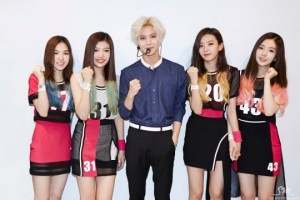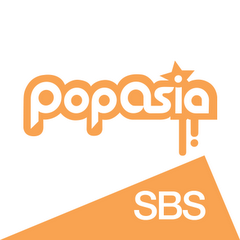Autoethnographers strive to use language and methods of interaction to find themselves in the crosshairs of ‘autobiographic impulse’ and the ‘ethnographic moment’ (Spry 2001), but what if there is no convergence of language and access points, such as may be the case when using social networks in other languages (Sina Weibo). I have experienced this struggle when attempting to derive further external cultural experience from the learning and curiosity which the EYK community and content has fostered within me. It became important to me to reflect on the ‘interactional textures occuring between self, other, and contexts in autoethnographic research’ (Spry 2001). Thus, I ventured out from the protective wings of the EYK community to explore the wider context of their content through consumption of pop music throughout Asia without the lens of EYK and ‘KPop Music Mondays‘ (their weekly KPop review) filtering what I see and like.
The creation of a personal narrative and the ability to recognise the occurrence of reflexive ethnography allows an autoethnographer to identify the cultural baggage which we bring to a personal experience and subsequently reflect on the reflective changes which result from our participatory cultural experiences (Ellis, Adams & Bochner 2011). In order to examine my cultural baggage in an environment where a detailed personal narrative could develop, I decided to start at home (Australia) with SBS PopAsia. SBS PopAsia is a comprehensive source of Asian pop content from many different countries (particularly South Korea), in the format of a television show screened on SBS 2 and a 24/7 live music stream.
Reflecting on my first impression of the SBS PopAsia television show screened on Sundays, I can see an unfortunate and unexpected mirroring of MTV and the Top 40 countdowns of my childhood, with the hosts standing in front of a cheesy green screen background while introducing slightly 1990s-feeling segments such as ‘what do all these videos have in common’ (this time it was ‘rain’ and ‘mobile phones’). In the first few minutes I notice a complete lack of interaction with artists and fans. Immediately I feel the deprivation of the freedom which digital platforms such as YouTube have given me when exploring new forms of entertainment, as I can’t skip any of the content that I’m not interested in. Similarly, the 24/7 digital radio stream forces the listener to experience the whole song being played, and there was no cultural context offered e.g. country of origin of the music, or information about the band. Ironically, the part of the SBS PopAsia experience which I struggled the most with ended up being related to language barriers (considering it is an Australian program); I expected the music videos to have a subtitle option, particularly in English, to explain why they are so popular amongst their regular viewers, as I have found a barrier to my enjoyment of KPop is that I don’t understand the lyricism or cultural context of the songs. However, there were no subtitles, and very little explanation of each video, so I ended up turning off the television 20 minutes before the show ended. This drove me back to digital platforms.

Two of my favourite KPop acts: Taemin and Red Velvet
http://jujutaem.wordpress.com/2014/08/18/starcast-danger-ace-taemin-steal-my-heart/
This time I attempted to involve myself in the weekly Korean show Music Bank. Immediately I was drawn into the show, as there were English subtitles for each KPop act’s song, and I found myself really enjoying the experience of actually seeing major KPop idols dance and sing to a passionate (and very loud) local audience. I hadn’t realised until now what a big fan of KPop I had become until I realised I was ‘fan-girling’ over Taemin and his performance of ‘Danger’. I really loved looking through the comment section and seeing others feel exactly the same; after all, ‘fandom is not just about expressing to the object of your fandom that you love it — it’s also about connecting with other fans (Miller 2014).
Upon reflection, I could see how incredibly important my research of KPop bands and idols and observation of online fan communities had been in fostering a genuine connection within this cultural context. This experience has shown me just how valuable the EYK community is to me and the breaking down of barriers to participation in the wider Korean entertainment context, and how digital platforms allow much more inclusive access to the enjoyment of new experiences, particularly in comparison with traditional media forms.

I can completely relate to your struggle in terms of a lack of convergence between language and access points. I really like that you have expanded your research further to combat this. I am desperately trying to find English subtitles for the Korean television show I have chosen for my individual study, but am now too realising that I will have to leave my comfort zone and try new avenues of research. I really like your point that as autoethnographers it is important for us to identify the cultural baggage which we bring to a personal experience and subsequently reflect on the reflective changes which result from our participatory cultural experiences. Do you think that your ‘fan-girling’ could come under this umbrella of ‘cultural baggage’?
LikeLiked by 1 person
It’s interesting you mention that your barrier to enjoyment of KPop is your inability to understand the lyrics or context, but yet you seem to identify with the performers as you mentioned you were ‘fan-girling’ over them. It would perhaps be beneficial to contrast this with how you enjoy and connect to other music, as in whether normally you connect via lyrics, music or through the performers, and see if it’s just the cultural context that changing the way you experience and enjoy the music.
LikeLiked by 1 person
This particular part of my experience is probably why I found language a particularly prominent barrier: I frequently strongly identify with and enjoy decoding lyrics, it’s one of the biggest parts of why I love music, so not being able to understand the lyrics to my favourite songs definitely does impact upon my experience of them. While I still love KPop songs for the entertainment value, sound, the look of the band etc, it’s great to be able to understand what they are singing as well!
LikeLiked by 1 person
It’s really interesting what you said about SBS Pop Asia. Considering it is a specifically Australian program, you would naturally assume that there would be some provision for breaking the ever-present language barrier between us and those in Asian countries. I really like how you focus on your own perceptions and experience of show while watching, it was really evident of the autoethnographic methodology!
Great post this week.
LikeLiked by 1 person
Thanks so much for your post. It has helped me put autoethnographic methodology into some form of context I can get my head around. You present the concept in a very practical way and the examples you have used assisted in my comprehension or a topic that I am working hard to understand.
LikeLiked by 1 person
Never thought I’d say this but an english K-pop show would be interesting to watch. I never considered that there would be enough of an audience for that kind of show. The fact that they subtitle it is super interesting, especially since with music a lot of the nuance is lost in translation. It doesn’t rhyme, it doesn’t flow with the music. It just seems odd that music would be translated to me, which I suppose is the point of this autoethnography stuff.
LikeLike